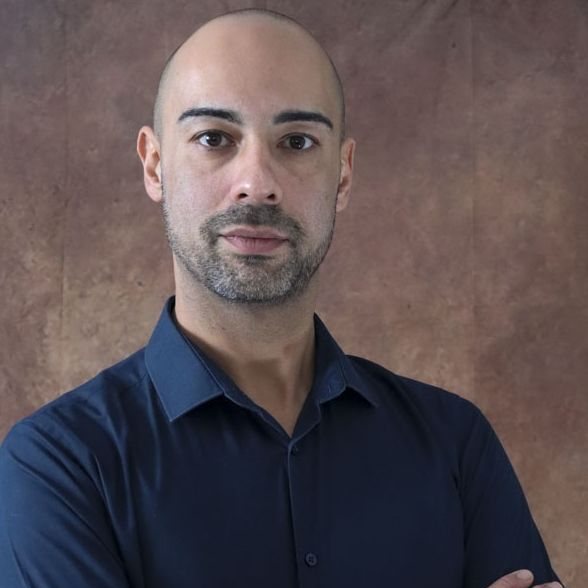Sou céptica em quase tudo. Se leio algo na internet sobre saúde, geralmente não acredito. Seja a promessa de que a dieta “paleo” me vai fazer viver até aos 100 anos (o que é estranho, considerando que no Paleolítico era preciso muita sorte para chegar aos 35 anos), seja a revelação de que lágrimas de elefante curam todos os dói-dóis. É bem possível que a homeopatia funcione para algumas pessoas, graças à magia do abençoado efeito de placebo. Se funcionar, funciona. Ainda bem.
A internet está cheia destas coisas: modas “new-age”, ideias ridículas, pessoas – perdão – idiotas que não vacinam os filhos, defensores desta dieta e daquela dieta, espiritualidade barata, e vendedores de banha da cobra de todas as variedades. Os nossos ecrãs fervem com novas “buzzwords”. Cabe-nos decidir ignorá-las ou aceitá-las.
Uma das palavras que mais me tem aparecido recentemente é “mindfulness”. “Mindfulness”, traduzido por “atenção plena”, é uma palavra que me faz comichão nos dentes. O seu sentido é mais ou menos claro, e que mal pode haver na “atenção plena”? Para mim, porém, tem todas as marcas de uma “buzzword” espiritual, uma daquelas palavras que os donos da verdade utilizam contra nós, os outros.
Mas se a palavra me irritou, também despertou a minha curiosidade. Quis saber se, desta vez, não estaria a ser injusta. Além disso, confesso que sou uma daquelas pessoas que precisa de muita ajuda para se concentrar. Sou o caso típico de quem tem demasiadas coisas para ver, ler, pensar e fazer ao mesmo tempo. Antigamente, era capaz de fazer muitas coisas ao mesmo tempo, até com os olhos fechados. Mas a idade atinge-nos a todos. Preciso de me focar.
Vi que o livro ia sair em Portugal (com o título de Mindfulness. Atenção Plena), e reparei que a terapia em que o livro é baseado, “Mindfulness Based Cognitive Therapy” (MBCT), é recomendada pelo NICE (o Instituto Nacional de Excelência em Cuidados de Saúde, que aconselha o SNS britânico). Descobri que estava previsto um seminário com o autor, Mark Williams, um professor emérito da Universidade de Oxford, na Fundação Champalimaud. Enfim, boas razões para pensar: “espera… talvez isto não seja uma coisa de charlatão… Vamos lá ver.”
E eis como arranjei um exemplar do livro, e um lugar no seminário, à espera de saber mais sobre o assunto.
Nunca tinha estado na Fundação Champalimaud. No auditório, enquanto cumprimentava uma jornalista sentada ao meu lado, admirei a janela gigantesca com vista para o mar: era noite, e tentei imaginar como é que seria durante o dia. A sala encheu-se. Tem 400 lugares sentados. Às nove horas, o seminário estava para começar e havia ainda uma multidão à porta, a tentar entrar. Finalmente, a organização cedeu, e deixou muita gente sentar-se nas escadarias do auditório. Quanto a sessão começou, deveriam estar umas 500 pessoas dentro da sala, e provavelmente mais gente na parte de fora.
Na audiência, estavam representadas todas as idades, dos 20 aos 70 anos. Quando um especialista em psiquiatria clínica começou a apresentar o orador, a sala calou-se.
Embora soubesse que era um sensato professor de Oxford, perguntei-me se o professor Williams ia entrar no palco como um daqueles oradores motivacionais, cheios de energia evangelista, mangas arregaçadas a mostrar braços musculados, pronto para nos conquistar as almas. Tal é a minha desconfiança da indústria de auto-ajuda.
Não foi nada disso. O professor subiu sossegadamente ao palco, vestido formalmente, com um fato de verão, pegou no controle remoto para fazer a apresentação que ia ser projectada na parede gigante atrás dele, e começou a falar. Mark Williams é um senhor gentil e simples. Tem uma voz doce e bondosa, e sentido de humor. É, de certo modo, um inglês típico. Falou sem hipérboles, deu-nos as estatísticas dos milhões e milhões de dias de trabalho perdidos em todo o mundo por causa da depressão (mais do que por causa de qualquer outra condição patológica) e demonstrou com gráficos que a terapia que ele e a sua equipa têm desenvolvido nestes últimos anos reduz para metade a taxa de recorrência da depressão. Para metade.
Pediu-nos que meditássemos durante um par de minutos, para nos explicar que a terapia de atenção plena nada tem a ver com “estar sentado no topo de uma montanha, com um manto a flutuar ao vento”. Esta é uma “meditação para nós, os outros”.
É muito estranho tentar meditar numa sala com outros 499 seres humanos, sobretudo quando, como eu, somos o tipo de pessoa que, logo ao fechar os olhos, fica com a cabeça cheia de pensamentos insanos e ridículos, e cheia de medo que esses pensamentos lhe saiam subitamente da boca em voz alta. A minha mente, como de costume, encheu-se com essas tolices, enquanto eu era suposta estar focada na minha respiração. Felizmente, o professor teve a simpatia de nos dizer que isso é perfeitamente normal, e que é essa precisamente a razão por que devemos fazer estes exercícios: para aprendermos a lidar com os nossos pensamentos.
De repente, dei por algo muito pouco habitual. É raríssimo em Portugal estar numa audiência silenciosa. De facto, não me lembro de uma única ocasião em que isso me tivesse acontecido. Nunca. Seja num filme, numa peça de teatro, numa reunião escolar, numa palestra ou num lançamento de livro, há sempre alguém, algures, a bichanar com alguém ou até a falar ao telemóvel (mesmo no cinema!). Esta noite, porém, houve silêncio durante 90 minutos.
O professor Williams não é nenhum charlatão, nem um vulgar orador motivacional. Não é um guru nem um vendedor de banha da cobra. É um homem que sabe exactamente do que fala. A sua terapia é levada a sério pelos profissionais de saúde mental na Grã-Bretanha, está a ser estudada nas escolas, e é recomendada, não só para casos de depressão, mas de stress e de ansiedade. E lembro novamente que reduz a metade a taxa de recorrência da depressão. Isso é muito. Só espero que os gurus da internet não estraguem a sua reputação.
Eles vão tentar. Hão-de aparecer, se é que já não apareceram, gurus e charlatães a querer explorar isto, a proclamar que nos vão salvar as vidas, a tentar esvaziar-nos as carteiras e fazer-nos perder tempo. Pergunto-me se o Mark Williams e a sua equipa, com os seus ensaios clínicos, o apoio do Wellcome Trust e do SNS britânico podem voar acima de todos estes vendedores de banha da cobra, e fazer da MBCT (Mindfulness Based Cognitive Therapy) uma terapia sancionada oficialmente pelos serviços de saúde do mundo. Espero que sim. Repito mais uma vez: reduz a metade as taxas de recorrência da depressão.
Vou meditar. Até para a semana.
(traduzido do texto original inglês pela autora)
On the look out for quackery
I’m a sceptic, about almost everything. If I read something on the net about health, whether it’s a claim that the paleo diet is going to make you live to a hundred years old (which is weird, since in palaeolithic times, we were lucky if we lived to 35), or an advert for homeopathic elephant’s tears that makes all your boo boos go away, I ignore it, because I am sure it is twaddle. It might be that homeopathy works for you, even though it’s just the blessed placebo effect working its magic and not the infinitesimally diluted elephant’s tears. If it gets you through the night or mends you, carry on. It’s great.
But, gosh, there’s a lot of it about. Annoying new age fads, ridiculous ideas, anti-vaccination conspiracy theorists – sorry – idiots, this diet, that diet, cheap spirituality and snake oil salesmen of every kind. New buzzwords creep onto our screens and it is up to us to ignore or accept them.
One of the buzzwords that has been showing up a lot recently is mindfulness. Mindfulness is a word that makes my teeth itch. It’s more or less plain from the name what it’s about, and what could be wrong about mindfulness? Being mindful is a good thing, after all, but it has all the hallmarks of a spiritual buzzword, a word for the self-righteous to use against the rest of us.
Irritating as the word is to me, though, I was drawn to look into it. I wanted to see if I was being unfair. Also, I need something the size of a sledgehammer to help me concentrate. I am your typical modern day case of too many things to do and think and see all at the same time. I used to be able to multitask with my eyes shut. But age takes us all. I need to focus.
I saw that a book was coming out in Portugal, the Portuguese version of Mindfulness: An Eight-Week Plan for Finding Peace in a Frantic World, and noticed that the therapy on which the book is based, Mindfulness Based Cognitive Therapy (MBCT) that the author has researched and structured, is recommended by NICE (The National Institute for Health and Care Excellence, in Britain, which instructs the NHS which drugs and therapies to use). There was to be a seminar at Fundação Champalimaud, by the author, Oxford Emeritus Professor, Mark Williams. All good reasons to think, “What? Wait… this isn’t a quack thing? Oh. Ok…”
So, I asked for a copy of the book, and got a place in the seminar. I was intrigued and I wanted to write about it.
I hadn’t been inside Fundação Champalimaud before and as I said hello to a journalist sitting next to me, I marvelled at the gigantic ovoid window that looks out to sea from the auditorium. I wondered what it must look like during the day. The room filled up. The capacity is 400. At 9pm, the seminar was about to start and people were waiting at the door to be allowed in to fill the few empty seats of people who hadn’t arrived in time. Then they started to fill the stairs. By the time the introduction to the conference started, there must have been well over 500 people in the auditorium.
The audience was made up of every age from twenties to seventies. The introduction by a clinical psychiatrist began, and the room hushed.
Even though I knew he was a sensible Oxford professor, I wondered if Prof. Williams would enter the stage like one of those energetic and untrustworthy motivational speakers, with their rolled up sleeves over muscly forearms, bounding onto the stage with evangelical energy, ready to buy our souls, getting us whooped up, such is my mistrust of the self-help industry.
But of course, no. Dressed smartly, he humbly climbed onto the stage, calmly picked up the remote control for the slide show that would be projected on the massive back wall, and began. He is a gentle man, with a kind voice, a sense of humour and is quintessentially English. He spoke with no hyperbole, gave us the statistics about the millions of days lost per year to depression worldwide (more than any other single debilitating condition) and showed the graphs that demonstrated that the therapy he and his team have developed over the last few years has been clinically proven to halve recurrence rates in depression. Halve them.
He asked us to meditate for a couple of minutes, to help to explain that mindfulness meditation has nothing to do with, as he put it, “sitting on top of a mountain in flowing robes”. This is “meditation for the rest of us”.
It’s quite an odd thing to sit in a room with 499 other people meditating if you’re the kind of person whose mind fills with the most insane and silly thoughts the second her eyes shut and, at the same time, has a phobia about blurting out loud those thoughts in public. My mind raced with my usual nonsense, while I was supposed to be focussing on my breathing. Prof. Williams kindly told me and the other 499 meditators that we should be fine with that, our minds do race, and that’s why we were doing this: to learn how to deal with all those thoughts.
I suddenly noticed something. It is a rare, rare thing in Portugal to sit in a silent audience. In fact, I can’t remember doing so. Ever. Whether it’s a movie or a play or a school assembly, or a lecture or a book launch, there is always someone having a nice chat. But this night, there was total silence. For the whole 90 minutes.
This was no quack. This was no motivational speaker. This was no internet guru nor snake oil salesman. This was a guy who damn well knew what he was talking about, and cared about it, too. This is a therapy that is being taken seriously by the mental health professionals in Britain, is being trialled in schools, and is recommended as a help in stress and anxiety management, not just depression. Importantly, it halves recurrence rates in depression, and that is massive. I just hope the internet gurus don’t destroy its reputation.
They will try. There will be quacks and gurus aplenty taking this on, setting themselves up to save your life, in fact, there already are, trying to take your cash and your time. I wonder if Mark Williams and his team with their scientific clinical trials, their backing from the Wellcome Trust and the British NHS can outshine the quackery and install MBCT as an accepted, worldwide, officially sanctioned health care based therapy. I hope so. It halves recurrence rates in depression.
I’m off to meditate. See you next week.











